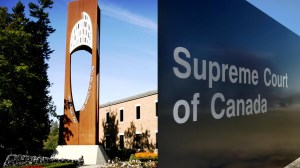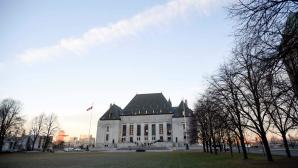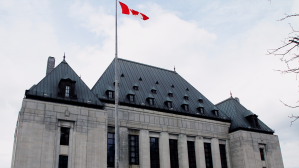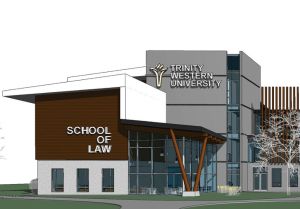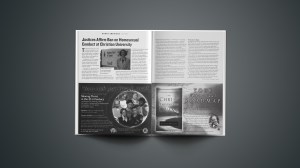In this series
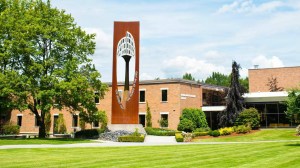
A Nova Scotian law society cannot deny future graduates of Canada’s first Christian law school the right to practice because of the college’s position on sexuality, a provincial Supreme Court justice ruled on Wednesday.
“This decision is important not only to [Trinity Western University’s] effort to launch a School of Law but also, we believe it sets an extremely valuable precedent in protection of freedoms for all religious communities and people of faith in Canada,” Trinity Western University (TWU) spokesperson Guy Saffold said in a statement.
Last spring, the Nova Scotia Barristers’ Society (NSBS) offered TWU law graduates recognition—but only if the school struck its rules against “sexual intimacy that violates the sacredness of marriage between a man and a woman.”
In his decision, Justice Jamie Campbell wrote that asking TWU to change its community covenant was akin to the NSBS dictating what professors be offered tenure or setting admissions policies:
This decision isn’t about whether LGBT equality rights are more or less important that the religious freedoms of Evangelical Christians. It’s not a value judgment in that sense at all. It is first about whether the NSBS had the authority to do what it did. It is also about whether, even if it had that authority, the NSBS reasonably considered the implications of its actions on the religious freedoms of TWU and its students in a way that was consistent with Canadian legal values of inclusiveness, pluralism, and the respect for the rule of law.
Campbell noted that while the views of many Canadians toward LGBT people have undergone a “decisive shift,” those whose perspectives have stayed the same “are not moral outliers with aberrant views requiring education at best, or coercion at worst, by more thoughtful and progressive government agencies."
“Tolerance then has to involve an element of respect if it is to go beyond passive aggressiveness or perhaps beyond moral relativism or hypocrisy,” he wrote. “The respect is not for the sometimes apparently closed minded opinions and outdated beliefs of others. The respect is for the basic human dignity of those who hold those views and their rights as Canadian citizens to act according to them, within limits.”
To operate in a province, Canadian law schools must receive approval from the Ministry of Advanced Education in the school’s province (in this case, British Columbia), the Federation of Law Societies of Canada, and the provincial law society, The Globe and Mail reported. TWU was approved by the first two bodies in December 2013, and by most provincial law societies. But the school is still waiting to hear if its future graduates can practice law in Ontario and British Columbia. Last year, TWU legally challenged Ontario’s law society after the organization voted to reject its graduates.
Last October, the Law Society of British Columbia reversed its decision to recognize it. In December, British Columbia’s minister of Advanced Education also revoked his support.
(Earlier this month, New Brunswick’s law society voted not to rescind TWU’s accreditation.)
Writing for First Things, Mathew Block argued that “as Canadian society moves in an increasingly secular direction, these sorts of challenges against religious institutions are to be expected. But they are nevertheless actions that religious people can and should fight. We have a place in the public square. And we should not cede it willingly.”
This is not the first time TWU has dealt with a challenge to its sexual ethics rules. The school’s teacher-training program was denied accreditation over its “discriminatory” stance on homosexuality But a 2001 Canadian Supreme Court ruling "upheld the right of Trinity Western's teacher training program to apply the community covenant to bar homosexual relationships."
The 2001 lawsuit dealt with “the ability of TWU trained teachers to respect equality and diversity,” and the Nova Scotia Barristers’ Society didn’t argue that TWU-trained lawyers wouldn’t be more likely to discriminate, the Nova Scotia Justice noted. Instead the law society argued that accepting a law degree from the institution would itself “amount to condoning discrimination.”
CT weighed in on the debate over "sexual standards" at Christian colleges in 2011, and previously reported the debate over TWU's confessional standards for faculty.


